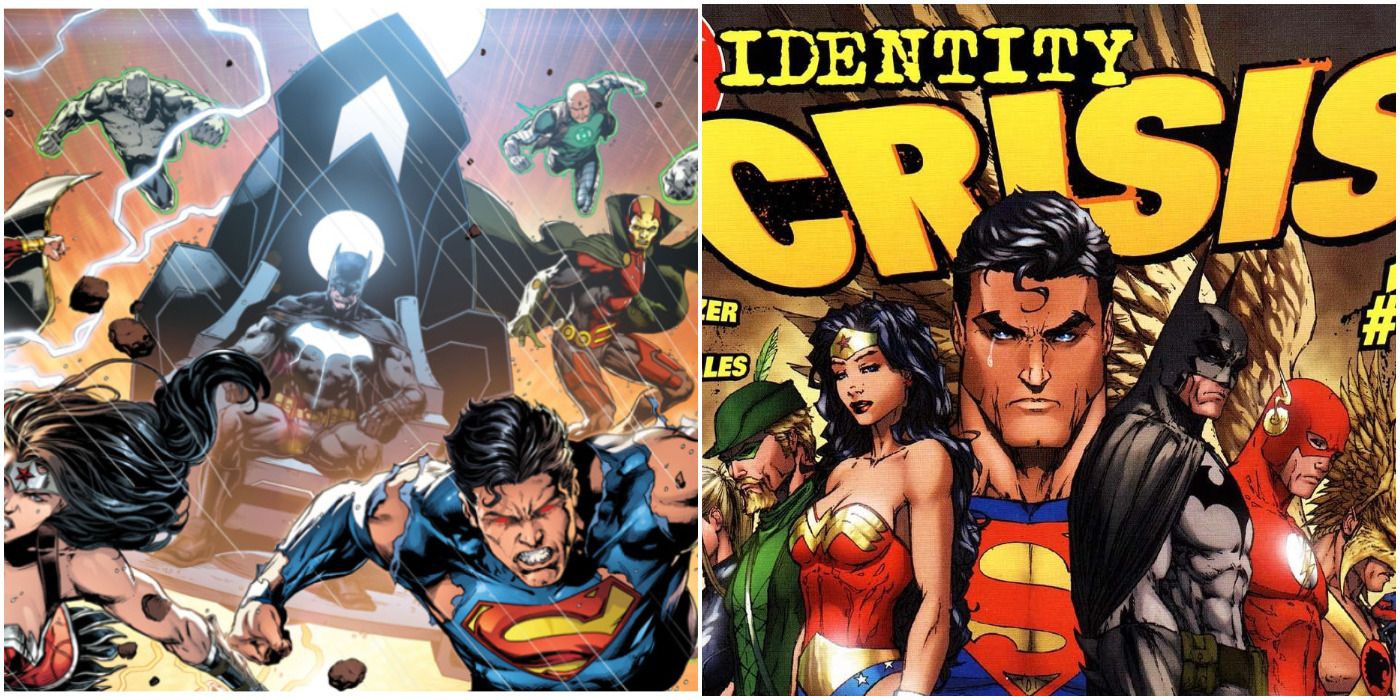Kazuo Ishiguro's Novels: The Power Of Remembrance And Oblivion

Table of Contents
Memory as a Central Construct in Ishiguro's Fiction
Memory isn't merely a plot device in Kazuo Ishiguro novels; it's a central construct shaping character actions, motivations, and ultimately, their very being. The act of remembering, or forgetting, becomes a powerful force determining identity and self-understanding.
The Weight of the Past in Never Let Me Go
Never Let Me Go, with its haunting portrayal of cloned human beings, powerfully illustrates the impact of fragmented memories and suppressed truths. The clones' carefully constructed childhoods, devoid of complete knowledge about their destined fate, leave them with a sense of incompleteness. Their attempts to piece together their pasts, to find meaning in their elusive memories, form the emotional core of the novel.
- Significance of childhood memories: The seemingly idyllic setting of Hailsham is juxtaposed with the underlying horror of their predetermined purpose. The characters cling to fragmented memories of their time there, searching for clues to their identity and a potential escape from their fate.
- The elusive nature of truth: The truth surrounding their existence is deliberately withheld, creating a sense of unsettling ambiguity and further highlighting the impact of missing pieces in their collective memory.
- Reconstructing their pasts: Kathy, Ruth, and Tommy's desperate attempts to find their "possible," a supposed loophole that might save them from their tragic destiny, underscore the importance of memory and the search for identity and meaning within the confines of their restricted pasts. The search itself becomes a form of resistance against the oblivion imposed upon them.
The Unreliable Narrator and Shifting Recollections in The Remains of the Day
The Remains of the Day masterfully employs an unreliable narrator, Stevens, whose meticulously crafted recollections subtly distort the truth. His repressed emotions and unwavering adherence to duty prevent him from fully confronting his past, resulting in a selective memory that shapes his self-perception and understanding of his actions during his service at Darlington Hall.
- Role of selective memory: Stevens meticulously recounts his duties and interactions, yet crucial emotional details are omitted or minimized, reflecting his ingrained repression and the social constraints of his time.
- Impact of social constraints: The rigid social hierarchy of pre-war England and the pressures of his profession significantly influenced his ability to process and express his emotions, leading to selective memory and self-deception.
- Late-life reckoning with the past: The journey undertaken by Stevens during the novel's latter half represents a late-life attempt to confront his repressed memories and grapple with the consequences of his choices, highlighting the long-term psychological impact of repression and the elusive nature of true self-knowledge.
Exploring Trauma and Collective Memory in A Pale View of Hills
A Pale View of Hills delves into the lasting impact of war and its devastating consequences on individual and collective memory. The novel explores the lingering trauma experienced by its characters, highlighting the difficulty of confronting painful memories and the complex ways in which trauma is passed down through generations.
- Themes of guilt and loss: The characters wrestle with guilt and loss, their memories haunted by the events of the war and its aftermath, demonstrating the profound and lasting effects of historical trauma.
- Challenges of confronting painful memories: Etsuko struggles to reconcile her past, and her inability to fully confront her trauma leads to further emotional distress. The narrative subtly explores the destructive power of suppressed memories and the necessity of facing painful truths for eventual healing.
- Collective memory: The novel reflects on the collective memory of a nation grappling with the effects of war, highlighting its impact on individuals and communities. The shared experience of trauma and the differing ways in which people process it are central themes of this profoundly moving novel.
Oblivion as a Form of Coping and Escape
While remembrance plays a vital role, oblivion acts as a counterpoint in Kazuo Ishiguro's work, a coping mechanism, a form of escape from painful truths. The characters often choose, consciously or unconsciously, to forget or repress painful memories, exploring the psychological consequences of such actions.
The Deliberate Erasure of the Past
In various Ishiguro novels, characters actively or passively choose oblivion to avoid confronting difficult realities. This erasure of the past, however, often carries significant emotional weight.
- Examples from different novels: In The Remains of the Day, Stevens's meticulous adherence to duty and his repression of emotions leads to a self-imposed oblivion regarding his own feelings. Similarly, in Never Let Me Go, the clones' limited knowledge and carefully curated childhood serve as a form of carefully orchestrated oblivion, protecting them from the harsh reality of their predetermined fates.
- Psychological consequences: These characters frequently pay a heavy price for their choice of oblivion, whether it manifests as emotional repression, an inability to form meaningful connections, or a crippling sense of isolation. The long-term effects of suppressing painful memories are a key theme throughout Ishiguro’s work.
- Coping mechanisms: Oblivion, in this context, doesn't represent a simple escape, but rather a complex and often self-destructive coping mechanism employed by characters struggling to deal with overwhelming trauma or difficult truths.
The Blurring of Lines Between Reality and Memory
Ishiguro masterfully blurs the lines between reality and memory, highlighting the subjective nature of memory and its susceptibility to distortion. This blurring impacts narrative structure, creating ambiguity and challenging the reader to discern truth from subjective recollection.
- Unreliable memory: The unreliable narrators in his novels often present skewed versions of events, leaving the reader to piece together the fragmented truths hidden within their accounts.
- Impact on narrative structure: This manipulation of memory becomes a structural element, affecting the pacing, revelations, and overall meaning of the narratives.
- Character interpretation: The reader’s understanding of characters is shaped by the reliability (or unreliability) of the memories they share, forcing the reader to actively engage in interpreting the presented information.
The Ethical Implications of Oblivion
The choice to forget or suppress painful memories raises important ethical questions, both on an individual and a societal level. The consequences of failing to confront the past can significantly impact present actions and future possibilities.
- Consequences of forgetting: The individual and collective cost of forgetting or suppressing traumatic experiences often extends beyond individual emotional well-being. It can shape political choices, social structures, and personal relationships.
- Confronting the past: The novels highlight the importance of actively confronting painful memories, even though this process can be emotionally challenging. This confrontation, however imperfect, offers a pathway towards understanding, healing, and preventing the recurrence of past traumas.
- Ethical responsibilities: Ishiguro's work prompts readers to consider the ethical responsibilities associated with remembering the past, acknowledging the impact of historical events, and avoiding the repetition of past mistakes.
The Interplay Between Remembrance and Oblivion in Shaping Identity
The constant tension between remembrance and oblivion fundamentally shapes the identities of Ishiguro's characters. Their self-perception is deeply intertwined with their ability (or inability) to remember and reconcile their pasts. This interplay creates richly complex and emotionally resonant characters who are simultaneously defined by what they remember and what they choose to forget.
- Identity formation: The very process of remembering, selectively remembering, and the act of forgetting actively contributes to the formation of each character's unique identity.
- Self-perception: How a character perceives themselves is directly tied to their relationship with their past; their understanding of who they are is shaped by the memories they retain and the ones they repress.
- Memory and identity: This constant dance between remembering and forgetting forms the very foundation of their identities, highlighting the intricate relationship between the past and present self.
- Examples: In Never Let Me Go, the clones' search for their "possibles" underscores their attempts to define themselves outside of their predetermined fates, highlighting the power of memory in shaping their sense of self. In The Remains of the Day, Stevens’s inability to fully confront his past prevents him from fully realizing who he is and what he truly values.
Conclusion
Kazuo Ishiguro's novels consistently demonstrate the profound impact of memory and its manipulation on character development and narrative structure. His exploration of remembrance and oblivion reveals the complexities of human identity and the enduring legacy of the past. Through his masterful storytelling, Ishiguro compels us to confront the ethical implications of forgetting and the crucial role memory plays in shaping who we become. To fully appreciate the depth and resonance of these themes, explore the rich tapestry of themes presented in Kazuo Ishiguro novels such as An Artist of the Floating World, When We Were Orphans, and The Buried Giant. These works continue to explore the fascinating and often painful interplay between remembrance and oblivion, solidifying Ishiguro's position as a master of exploring the human condition. Dive into the world of Kazuo Ishiguro novels and experience the power of his unique literary voice.

Featured Posts
-
 Thousands Of Miles Apart United In Dc Divided By Fate
May 25, 2025
Thousands Of Miles Apart United In Dc Divided By Fate
May 25, 2025 -
 How Demna Gvasalia Will Reshape Guccis Brand Identity
May 25, 2025
How Demna Gvasalia Will Reshape Guccis Brand Identity
May 25, 2025 -
 New Ferrari Hot Wheels Sets A Mamma Mia Moment For Collectors
May 25, 2025
New Ferrari Hot Wheels Sets A Mamma Mia Moment For Collectors
May 25, 2025 -
 Naomi Kempbell Nayvidvertisha Fotosesiya Za Vsyu Kar Yeru
May 25, 2025
Naomi Kempbell Nayvidvertisha Fotosesiya Za Vsyu Kar Yeru
May 25, 2025 -
 Exploring The Nations Newest Business Hotspots
May 25, 2025
Exploring The Nations Newest Business Hotspots
May 25, 2025
